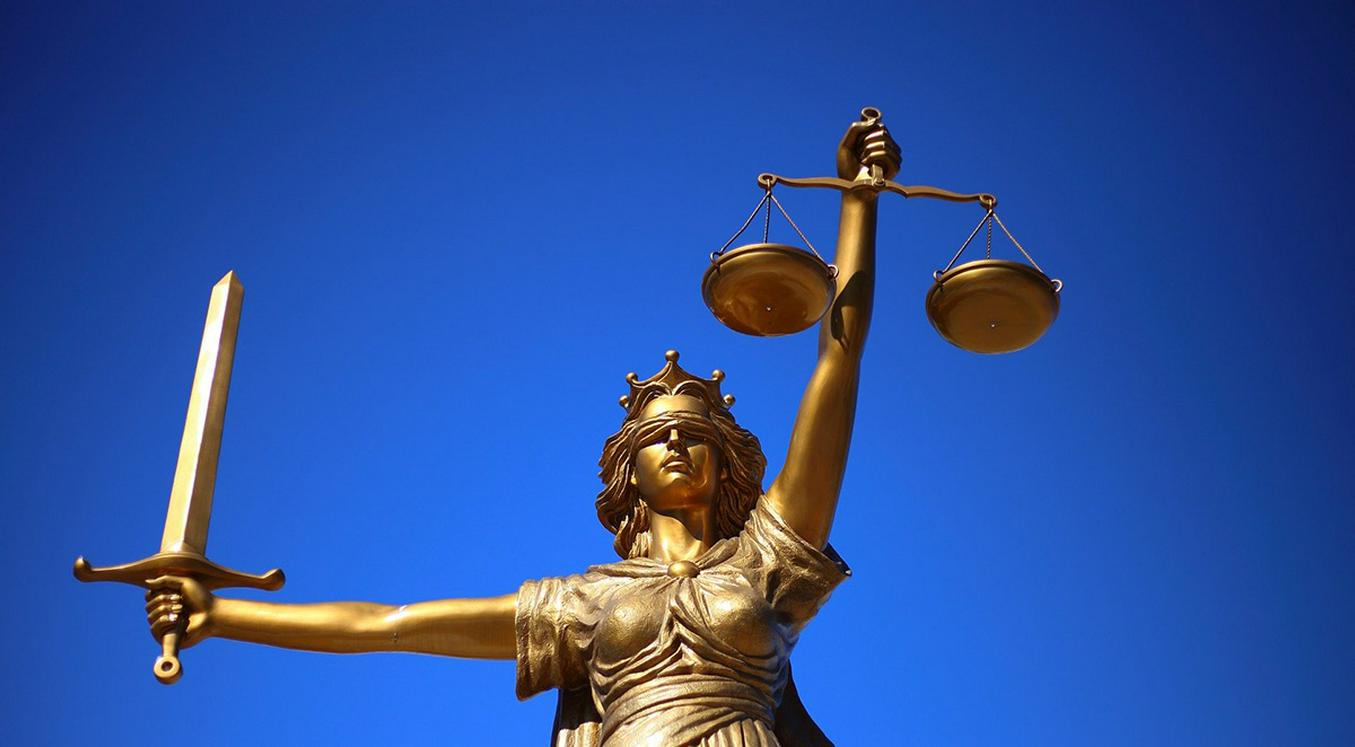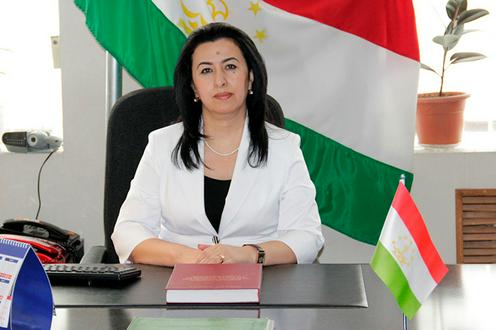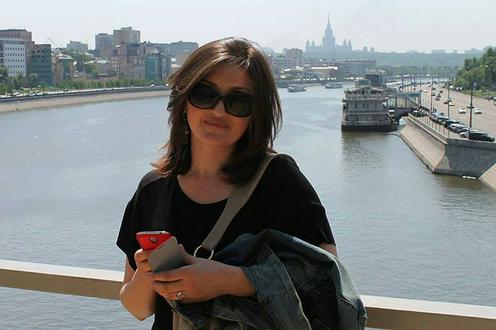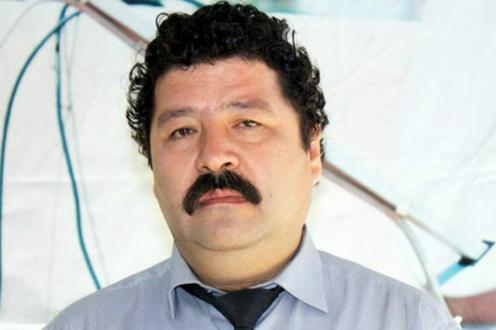Over the last three months, several Tajik judges have been removed from their positions by the country’s president Emomali Rahmon for “acts incompatible with the honour and dignity of the office of judge”. Many Tajiks are sure that there are significantly more corrupt judges than this in the country, but they evade prosecution as they often maintain dubious ties with law enforcement agencies or enjoy the protection of powerful patrons.
It is common to hear residents of Tajikistan these days exclaim something along the lines of: “God forbid we end up at the police station or in court!” People are scared of falling under the suspicion of law enforcement agencies – they know very well that an ordinary citizen, lacking the necessary ties and contacts, can have any kind of crime pinned on them by the police and they will not be protected by the courts. Judges often ignore claims of torture in police detention and frequently take the side of the prosecution. And civil court cases sometimes turn into a kind of bartering, where rulings are passed in favour of the side that pays the most.
Presdident Emomali Rahmon himself spoke about corruption in the judicial system at a meeting with representatives of the country’s courts in November last year. He noted that over the past ten years, 25 judges and 16 court officials have been convicted of corruption. Rahmon also spoke of the low level of competence of Tajik judges, who are often unable to correctly assess the evidence and fail to undertake a careful investigation of all the aspects of a case, and then make poorly-informed decisions and unlawful rulings, as well as frequently demonstrating bias.
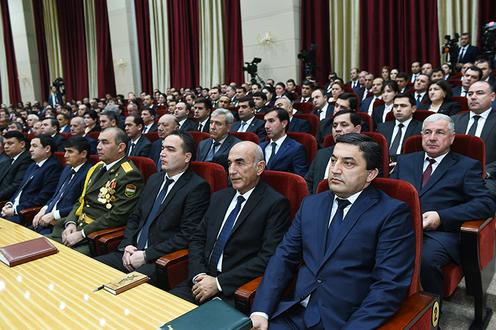 Representatives of the Tajik judicial system at a meeting with Emomali Rahmon. Photo from the Press Office of the President of Tajikistan
Representatives of the Tajik judicial system at a meeting with Emomali Rahmon. Photo from the Press Office of the President of Tajikistan
Thus, according to the president, in the first nine months of last year, courts of higher instance overturned 265 unlawful court rulings. He gave the example of the law’s application in cases involving drugs: while judges pass long jail terms for possession of small amounts of a banned substance, dealers involved in trafficking large volumes of drugs tend to get off lightly.
Rahmon called on judges to work honestly, reminding them that their job is not to send people to prison but to deliver justice, and that people’s fates lie in their hands.
“Whenever I introduce a new amnesty law, I spend months asking myself how to implement it, what to do to avoid corruption, how to make sure the actions of officers, judges and investigators do not cause any harm to the public. [...] I don’t know if they’re going to carry on acting in this way. This is the 5th or 10th reform of the judiciary,” the president said, tacitly admitting that previous attempts to reform the system had produced few results.
Rahmon tasked the leadership of the Supreme Court and the Supreme Economic Court with analysing the work of each individual judge and the causes of revisions or annulments of court rulings and to take steps to raise judges’ accountability for their decisions.
Nine signatories vs. the court president
The day before this meeting, President Rahmon received a letter signed by nine judges of the Supreme Economic Court, accusing the president of the SEC Mavluda Kalandarzoda of corruption. They claimed that the president of the court demanded a “cut” for every case they adjudicate, thereby forcing them to resort to corruption themselves.
In the copy of the letter distributed to the media, it is alleged that, in the three years in which Kalandarzoda has worked as president of the SEC, she has acquired several apartments in Dushanbe, a three-storey house in the Bobojongafurov district of the Sughd region, and a number of expensive cars registered in the names of her children and close relatives.
According to the letter’s authors, Kalandarzoda not only demands a cut from every case, but also frequently forces them to pronounce rulings that she herself dictates. In addition, even her husband and son, who both have previous convictions, interfere in court affairs. They also point out that Kalandarzoda’s deputy, Zokir Aminzoda, and the son of her other deputy, Komil Fayzali, also have criminal records.
Mavluda Kalandarzoda’s excesses, the judges claim, are linked to the fact that she is allegedly under the protection of powerful figures like Mahmadali Vatanzoda and Asadullo Rahmonzoda (Secretary of the Security Council and Human Resources Advisor to the president respectively – Fergana). “Protected by influential patrons, the president of the court forces us to carry out her illegal demands and to pronounce unlawful rulings in favour of people whom she seeks to please,” the judges write.
This was not the first time complaints have been directed at the head of the SEC by her subordinates. Judges earlier expressed their frustration with her working methods and with alleged forced contributions to a social project.
In sending their letter the day before the meeting with the country’s president, the judges presumably hoped that measures would be taken against their superior immediately at the meeting itself. After all, at a previous meeting with the directors of the financial, tax and customs agencies, the president had publicly accused the then head of customs terminal Dushanbe-1, Shahboz Rajabzoda, of abuse of office and fired him there and then during the session. But the issue of the head of the SEC was not raised at President Rahmon’s meeting with the judiciary at all, just as there was no further investigation into the letter’s allegations. More than likely, the letter did not even find its way into the president’s hands.
Nevertheless, shortly before and after the meeting, the president fired three judges – from the Sino district of the capital and from Guliston in the Sughd region (including the court president) – with the same charge of “committing acts incompatible with the honour and dignity of the office of judge”, and in January this year he removed a judge from the Kuhistoni Mastchoh district of Sughd region “for violating the law during the adjudication of cases”.
In defence of principles
Journalist Ramziya Mirzobekova recently complained about the actions of the president of another court. According to her, Shohmansur district court in Dushanbe had delayed addressing her claim for 14 months for no legitimate reason. While she was still living with her husband, they had purchased and renovated one apartment in Dushanbe and two apartments in the city of Khorog. In her statement of claim to the court, Mirzobekova requested that one of the apartments be awarded to her child. However, in spite of all the evidence supporting her claim, the testimony of witnesses and the demands of the law, the judge rejected her claim and ruled in favour of her ex-husband.
“The judge rejected my request on the grounds that our marriage had not been officially registered, even though she had earlier said: ‘It doesn’t matter that you don’t have a registration document. You have a child together, and the respondent admits that you were his wife. That is enough.’ Besides this, the Family Law Code allows for the absence of an official registration on a number of grounds. But in the final hearing, the judge suddenly changed her reasoning, asserting that the respondent never had any intention of establishing a family with me, even though he had never made any such statement in court. In addition, the judge accepted as authentic documents which my ex-husband had fabricated to claim that our apartment in Dushanbe was actually owned by his cousin, even though the property developer from whom we bought the apartment did not confirm the documents’ authenticity. Even the supposed “owner” said that the transaction was fictional. Really, charges should have been brought against my ex-husband for forging documents, but they were accepted as authentic,” Ramziya told Fergana.
The judge’s alimony ruling was made in the same vein. Despite the fact that the father of Ramziya’s child is a successful businessman, the court set alimony payments at just 1000 Somonis ($100).
“In order to get out of paying more alimony, he produced a document stating that he had wound up his business activities, even though he provided no other evidence that his company had been dissolved or sold to someone else. In effect, the court is willingly providing cover for illegal business activity, yet has no problem with depriving a child of comfortable living conditions,” she remarked.
In December, Mirzobekova wrote to President Rahmon complaining about four judges at the Shohmansur district court who at various stages had been in charge of her case, as well as the president of the district court Gulbona Saidzoda. Her letter was passed on to the Supreme Court for investigation, but she is still yet to receive an answer. The journalist is certain that the president of the court interfered in the ruling. Court staff themselves say that Saidzoda is under the protection of a high-ranking official close to the country’s president and therefore feels herself free to interfere in any case she wishes and force judges to make unlawful rulings.
“I believe that the rulings in my case were made not by the judges, but by the court president. Until half an hour before retiring to make her decision, the judge called on both sides to compromise. “I don’t know what the final decision will be, what decision we – that is, I – will make. But you must understand that I can neither fully reject her (Mirzobekova’s – Fergana) claim, nor can I fully rule in her favour”. Why the judge finally decided to deny my claim in its entirety one can only guess at. But acquaintances in the judiciary tell me that if the court president did indeed interfere in the case, then in all likelihood she will continue to do so in her instances, so all my attempts to appeal the decision will be in vain. In order to obtain any kind of justice, they told me, I would either have to pay or have some very highly placed contacts within the government,” the journalist said.
Copywriter judges
Corruption is so deeply rooted in the Tajik judicial system that everyone simply sees it as something normal, a Tajik lawyer, who has requested to remain anonymous, told Fergana.
“There was corruption in the courts 20 years ago, but not at the level that it is today. The old generation of judges still had a sense of the honour that was attached to the judicial gown, they thought about their reputations, tried to stick to the principle of justice and impose reasonable prison sentences. Now no one cares about this. These days, if you want to get a minimum sentence, you have to pay, otherwise you’ll get the maximum.
“Another issue is the level of competence of judges, who often have an unsatisfactory level of even basic legal literacy. Some cannot even issue rulings correctly. I know of judges who have lawyers write their rulings for them, and when they pass sentence in criminal cases they simply engage in copywriting – they re-write the prosecutor’s indictment and choose a sentence. Besides this, judges are almost never held accountable for their decisions, however unsubstantiated they are.
“In the past, we had a Council of Justice that had at least some form of oversight over judges’ work, and to which it was possible to address complaints. But when it was abolished, its functions were taken over by the Supreme Court and the Supreme Economic Court, which are either in on whatever schemes judges are involved in or cover for their colleagues in order to protect the “honour of the gown”. They put pressure on people in the higher instances, who in the absolute majority of cases uphold the decisions of their colleagues in the lower courts. The overturning of rulings in Tajikistan is an extremely rare phenomenon. Consequently, judges are almost never held to account. They are only likely to have problems if they are caught red-handed taking bribes,” the lawyer said.
Failed attempts at reform
Reform of the judicial system in Tajikistan has been going on almost since the country gained independence. In order to ensure greater independence of the courts, the Council of Justice was established in 1999 – a collegial organ charged with drawing up proposals for reform of the courts and judicial system, selecting candidates for judgeships, and raising judges’ qualifications. In 2016, the Council was abolished, a move that was again justified with the need to strengthen judges’ independence and guarantee the rule of law.
Over the last decade and a half, a number of programmes for judicial reform have been undertaken in Tajikistan, but, as President Rahmon rightly noted, the measures taken have proved ineffective.
“The reform programmes were aimed, among other things, at increasing the transparency of the courts and increasing access to their work. In particular, there were plans to set up detailed websites for the courts on which all court decisions would be published, but ultimately the courts limited themselves to more restricted web resources on which they occasionally publish some official announcement but give no information about any trials or court decisions. In other respects, too, access to the courts has remained limited. Today, when you go into any courtroom, there are guards who confiscate any audio or video devices so that no one records what judges say. In other words, the courts have tried as far as possible to restrict access to information about their work, which creates the perfect conditions for corruption,” the Tajik lawyer said to Fergana, on condition of anonymity.
He says that, according to the Tajik constitution, the courts should be independent from the executive branches of government. In practice, however, the office of the prosecutor-general often weighs down heavily on the courts and judges tend to comply with the wishes of the prosecution.
In order to truly reform the judicial system in Tajikistan, it is necessary to amend some sections of the country’s constitution, for it is there that the shaky foundations have been set, says Doctor of Jurisprudence Shokirjon Hakimov.
“Judges are appointed by the president, or approved by the upper chamber of parliament at the president’s nomination, which makes them dependent on the executive right from the start. They should be appointed collegially and on a competitive basis. They need to be given extra authority, for example by being appointed for life, but at the same time, punishments for irregularities that suggest criminal activity should be increased. In order to prevent judges from abusing their office, supervisory bodies need to be able to play their role, but they must be closely regulated and not be used as an instrument for exerting pressure on judges.
“Unfortunately, in the conditions of today’s Tajikistan, where all aspects of public interactions are mired in corruption, this does not happen. The problem starts at universities, where the studies of 90% of future judges are conducted on a contractual basis and teachers have no interest in failing them. By this means, students grow accustomed to corrupt relations right from the time of their studies. Later, during the selection and appointment processes, too, corruption, personal ties and nepotism dominate. Parliament itself is deeply implicated in this system, and for this reason holds back from a proper reform of the judiciary. And civil society and the press show little solidarity and limit themselves to reporting isolated incidents of miscarriages of justice. Ultimately, political will is needed to rectify the situation,” says Hakimov.
Ravshan Rajab
Translated by Nick L.
-
 17 December17.12Sake for SixCentral Asia’s Rapprochement with Japan Comes with Hidden Pitfalls
17 December17.12Sake for SixCentral Asia’s Rapprochement with Japan Comes with Hidden Pitfalls -
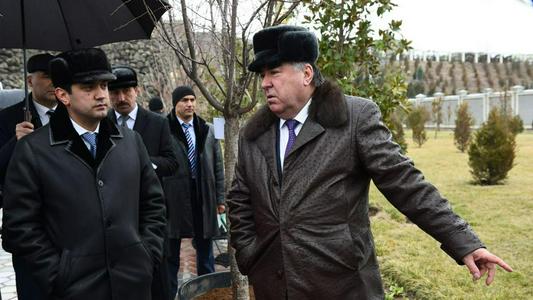 28 April28.04Keep it in the familyWhat lies behind Rustam Emomali’s meteoric rise to power?
28 April28.04Keep it in the familyWhat lies behind Rustam Emomali’s meteoric rise to power? -
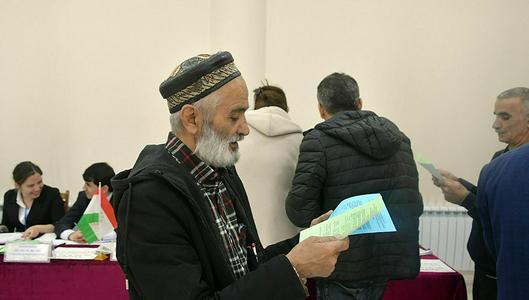 09 March09.03All according to planWhy the recent elections in Tajikistan will have no effect on how the country is run
09 March09.03All according to planWhy the recent elections in Tajikistan will have no effect on how the country is run -
 24 December24.12To Clean Up and to ZIYAWhat China Can Offer Central Asia in the “Green” Economy
24 December24.12To Clean Up and to ZIYAWhat China Can Offer Central Asia in the “Green” Economy -
 23 December23.12PhotoTokyo DriveJapan to invest about $20 billion in projects across Central Asia over five years
23 December23.12PhotoTokyo DriveJapan to invest about $20 billion in projects across Central Asia over five years -
 25 September25.09I Am Proud to Have Been Part of the Triumph of the Tajikistan National TeamGela Shekiladze sums up three years in Tajik football
25 September25.09I Am Proud to Have Been Part of the Triumph of the Tajikistan National TeamGela Shekiladze sums up three years in Tajik football
